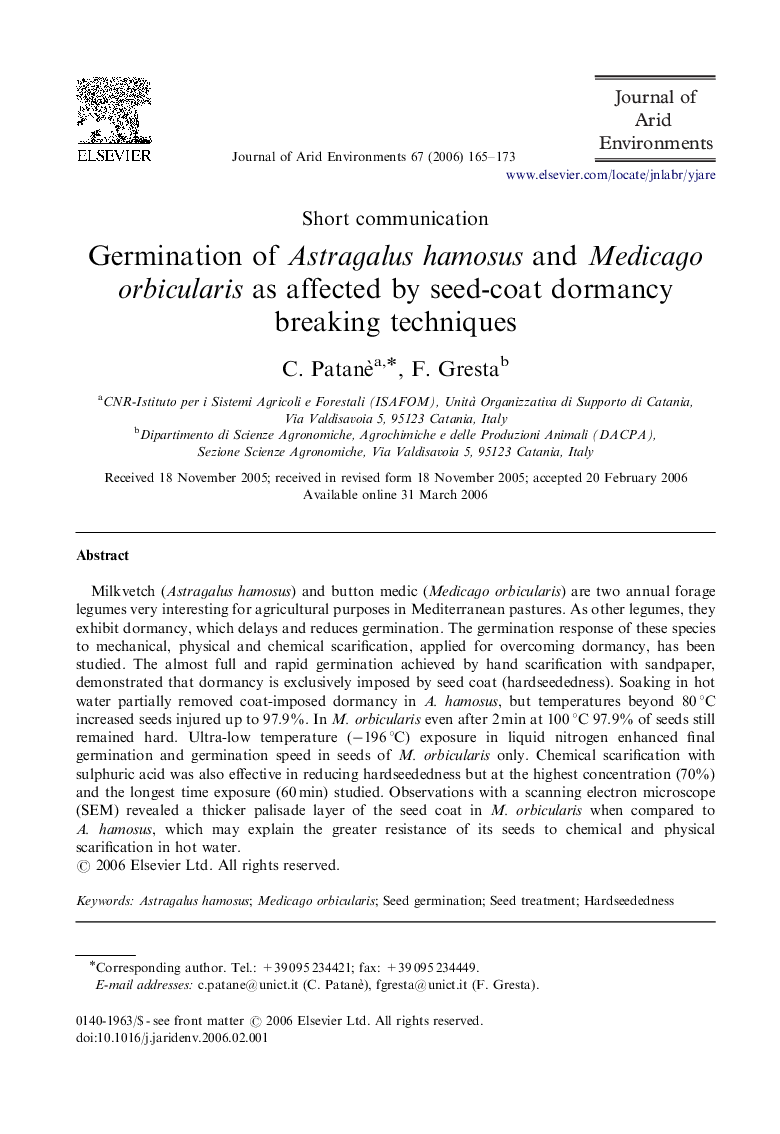| Article ID | Journal | Published Year | Pages | File Type |
|---|---|---|---|---|
| 4394788 | Journal of Arid Environments | 2006 | 9 Pages |
Milkvetch (Astragalus hamosus) and button medic (Medicago orbicularis) are two annual forage legumes very interesting for agricultural purposes in Mediterranean pastures. As other legumes, they exhibit dormancy, which delays and reduces germination. The germination response of these species to mechanical, physical and chemical scarification, applied for overcoming dormancy, has been studied. The almost full and rapid germination achieved by hand scarification with sandpaper, demonstrated that dormancy is exclusively imposed by seed coat (hardseededness). Soaking in hot water partially removed coat-imposed dormancy in A. hamosus, but temperatures beyond 80 °C increased seeds injured up to 97.9%. In M. orbicularis even after 2 min at 100 °C 97.9% of seeds still remained hard. Ultra-low temperature (−196 °C) exposure in liquid nitrogen enhanced final germination and germination speed in seeds of M. orbicularis only. Chemical scarification with sulphuric acid was also effective in reducing hardseededness but at the highest concentration (70%) and the longest time exposure (60 min) studied. Observations with a scanning electron microscope (SEM) revealed a thicker palisade layer of the seed coat in M. orbicularis when compared to A. hamosus, which may explain the greater resistance of its seeds to chemical and physical scarification in hot water.
